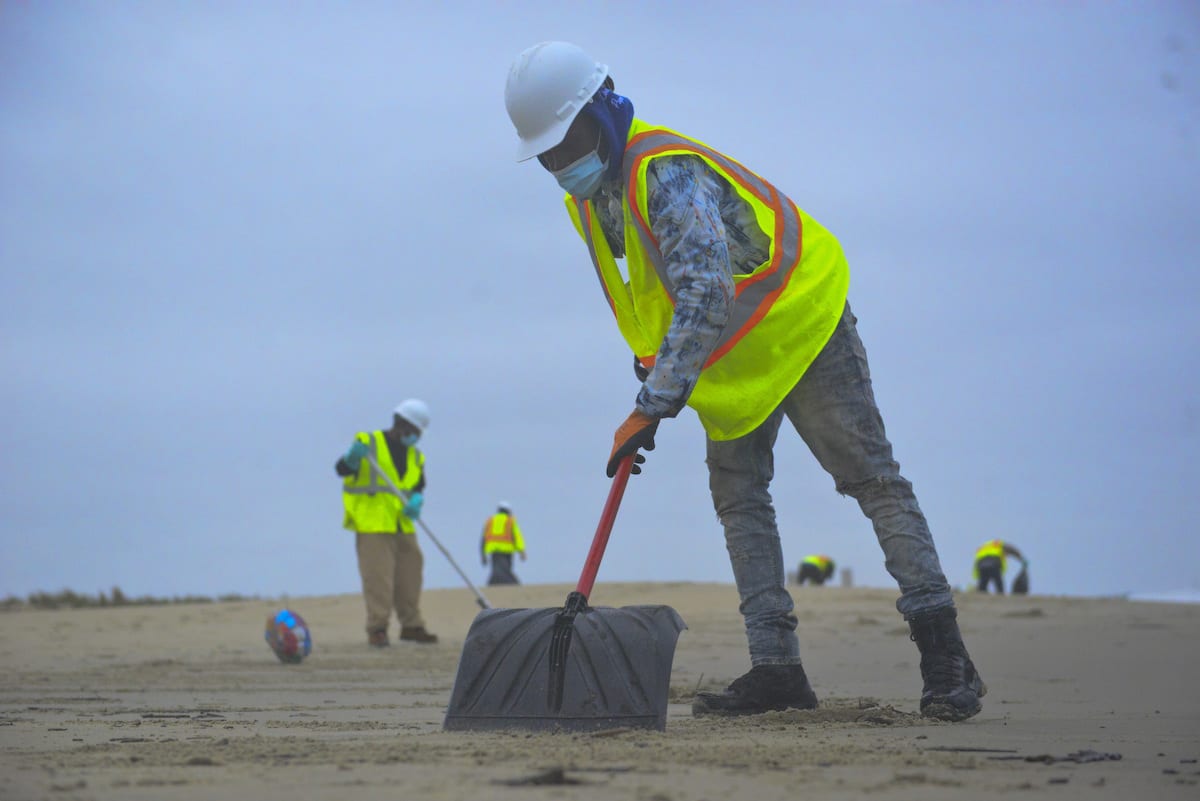A member of a contracted oil spill response organization cleans oily debris from Slaughter Beach in Delaware as part of the Broadkill 2020 oil spill response, Oct. 25, 2020. U.S. Coast Guard Photo
Clean-up crews have recovered approximately 55 tons of oiled debris from beaches in Delaware one week after mysterious oil patties began washing up along a 10-mile stretch of shoreline, the U.S. Coast Guard reported today.
The clean-up operation is continuing Monday under the management of the unified command consisting of the U.S. Coast Guard and Delaware Department of Natural Resources and Environmental Control.
The source of the oil is still unknown. It was first reported on Monday when patties ranging in size from a quarter to a manhole cover began washing up Broadkill Beach and other beaches in Delaware Bay and the Atlantic Coast.
About 55 tons – enough to fill four construction dumpsters – had been successfully recovered through Sunday afternoon, according to the Coast Guard.
“The job of removing oil from our beaches is challenging and labor-intensive, but we’re making progress,” said DNREC Secretary Shawn Garvin. “Our teams are getting more and more of it off our beaches every hour, every day.”
More than 100 personnel have been engaged in the cleanup operation each day since it began last week. Surveys over the weekend found small globs of oil and oily debris scattered from Slaughter Beach to the north side of the Indian River Inlet. A
n information advisory originally issued for bay beaches last week was extended to some ocean beaches, to include the areas: Slaughter Beach, Fowler Beach, Prime Hook Beach, Broadkill Beach, Lewes, Cape Henlopen State Park, Rehoboth Beach, Dewey Beach and the Indian River Inlet.
The towns of Lewes and Dewey Beach closed their beaches temporarily due to the oil, some of it settling into a gravel-like substance known as tar balls. The public is urged to avoid the oil patties and tar balls at the water’s edge, and of area closures.
The unified command has so received reports of 66 oiled birds. Tri-State Bird Rescue & Research of Newark is investigating the reports and treating wildlife that have been oiled in the water.
“Our crews and technology are yielding positive results,” said Lt. Cmdr. Fredrick Pugh, federal incident commander for the response. “We’re seeing a lot of this pollutant coming off of our beaches by the ton and that feels like a high level of productivity, but we’re not letting up. These communities need its beaches back.”

 Join The Club
Join The Club











